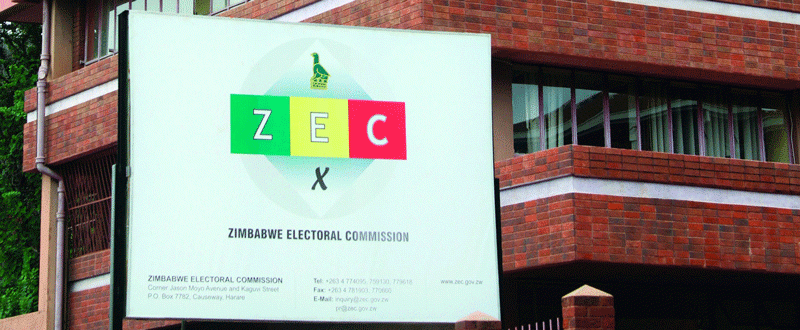
LAST week’s rejection by Parliament of the Zimbabwe Electoral Commission (Zec)’s preliminary delimitation report was a very important development in the life of our fledgling democracy.
In dismissing Zec’s report Parliament’s ad hoc committee highlighted some very fundamental issues that pointed to the fact that the electoral management body needs to re-examine the way it has been doing things.
It was quite uncharacteristic for an organisation that has been running elections for years to have its months of work dismissed as so shoddy that it did not even take into account last year’s population census figures which were supposed to critically inform the whole process. This is a serious indictment of Zec’s reputation going into the future, especially now as the nation prepares to conduct general elections in about six months’ time.
It has been 43 years since the country committed to running a “democratic, non-racist electoral system based upon universal adult suffrage”. In 1980 the country established a Delimitation Commission, under the Registrar-General’s office responsible for the delimitation of electoral districts and the Electoral Supervisory Commission (ESC), charged with supervising the conduct of elections.
The electoral management system was further revamped and re-structured in 2004 following recommendations by the Electoral Supervisory Commission, political parties and civil society organisations as well as taking into account the Principles and Guidelines Governing Democratic Elections adopted by the Southern African Development Community (Sadc) Heads of State and governments in Mauritius that same year.
The restructuring saw the birth of the Zimbabwe Electoral Commission, weaning off the management and conduct of elections from government.
In 2005 the ESC was abolished by Constitutional Amendment No 17 and Zec became responsible for running elections to reflect Zimbabwe’s commitment to conduct democratic elections. The Registrar-General of Elections was changed to the Registrar-General of Voters whose role was to solely register voters under the supervision of Zec, which was “responsible for compiling voters rolls and providing copies of these rolls to those requesting them”.
Zec then pledged to be a “centre of excellence in the management of elections and referendums” and embarked on a mission to “conduct credible elections and referendums in Zimbabwe” being guided by valued of “integrity, teamwork, impartiality, transparency, independence and inclusivity”.
- RG's Office frustrating urban voters: CCC
- Fast-track delimitation, Zec urged
- 'Political parties must not be registered'
- Zec to address nomination fees outcry
Keep Reading
Sadly, however, the way Zec conducted itself and the electoral processes for the 2023 general elections left a lot to be desired and completely reneged on all its sworn values, which is why some of us welcome the dismissal of the preliminary delimitation report as progressive and as a reminder to Zec that it should respect and stick to its mandate.
While some aver that there could be some political scheming in all this by the ruling Zanu PF to somehow ambush the opposition by creating a chaotic electoral playing field without a clear roadmap, we believe the rejection of Zec’s report should cox the organisation into remaining independent and impartial.
This is a strong reminder to Zec that it is not a government department and neither is it answerable to the ruling Zanu PF party, or any other party for that matter. Only when Zec awakens to this reality can it salvage its now tattered reputation.
If it, however, chooses to be haughty — as in the past months when it even refused to avail the voters roll to those requesting for it by charging an arm and leg for its access — Zec might as well forget that it will be trusted to conduct free, fair and credible elections that will pass Sadc’s Principles and Guidelines Governing Democratic Elections.







